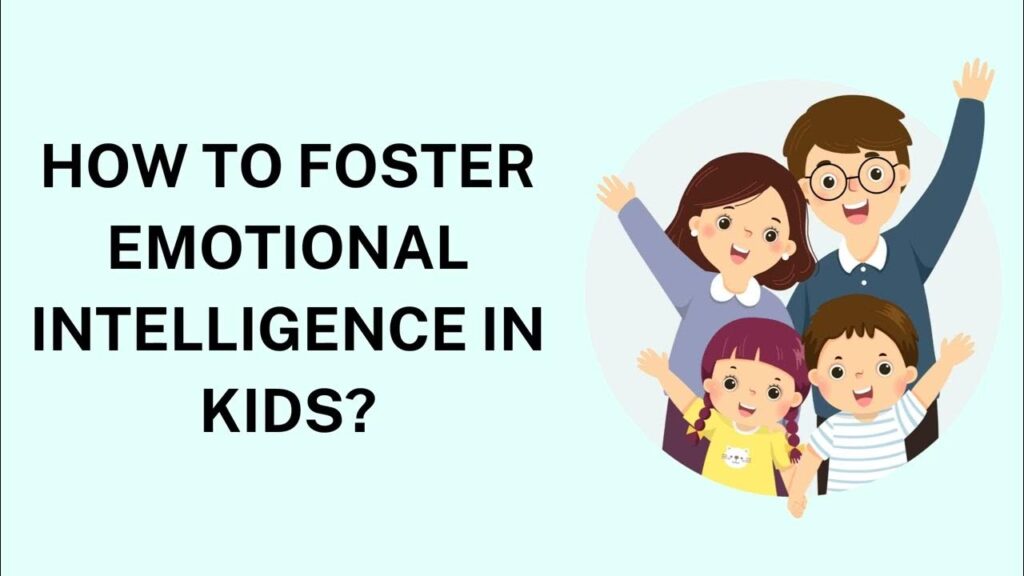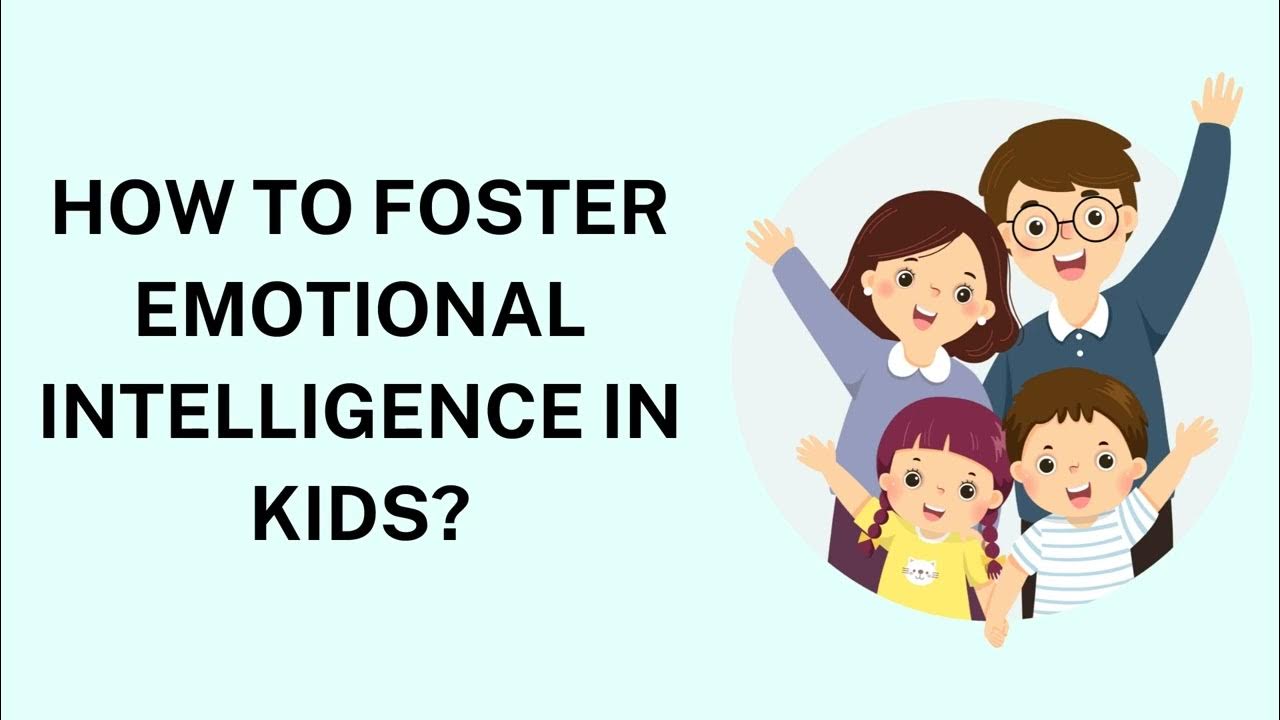
How to Foster Emotional Intelligence in Preschoolers: A Comprehensive Guide
In the formative years of early childhood, specifically during the preschool age, children undergo significant emotional development. Learning how to foster emotional intelligence in preschoolers is not just a beneficial practice, but a crucial investment in their future well-being and success. Emotional intelligence (EI), often referred to as EQ, encompasses the ability to understand, manage, and express one’s own emotions, as well as recognize and influence the emotions of others. This article provides a comprehensive guide on nurturing emotional intelligence in preschoolers, equipping parents, educators, and caregivers with practical strategies and insights.
Understanding Emotional Intelligence in Preschoolers
Before delving into specific techniques, it’s essential to understand what emotional intelligence looks like in preschoolers. At this age, children are beginning to grasp basic emotions like happiness, sadness, anger, and fear. However, their ability to articulate and regulate these emotions is still developing. Signs of emerging emotional intelligence include:
- Recognizing basic emotions in themselves and others.
- Expressing feelings through words and actions.
- Showing empathy and concern for others.
- Managing frustration and anger in constructive ways (e.g., using words instead of hitting).
- Demonstrating self-awareness by understanding how their actions affect others.
Fostering these skills early on can have a profound impact on a child’s social, emotional, and academic development. Children with high emotional intelligence tend to have better relationships, perform better in school, and exhibit greater resilience in the face of challenges. Therefore, understanding how to foster emotional intelligence in preschoolers is paramount.
Creating an Emotionally Supportive Environment
The foundation of emotional intelligence development lies in creating a safe and supportive environment where children feel comfortable expressing their feelings without fear of judgment. Here are some key elements to consider:
Validating Emotions
One of the most effective ways to foster emotional intelligence in preschoolers is to validate their emotions. This means acknowledging and accepting their feelings, even if you don’t agree with their behavior. Instead of dismissing their emotions with phrases like “Don’t be sad” or “It’s not a big deal,” try responding with empathy and understanding.
For example, if a child is upset because they can’t have a toy, you could say, “I understand that you’re feeling disappointed because you really wanted that toy.” Validating their feelings helps them feel heard and understood, which in turn encourages them to express their emotions in a healthy way.
Modeling Emotional Expression
Children learn by observing the adults around them. Therefore, it’s crucial to model healthy emotional expression. This means being open and honest about your own feelings, while also demonstrating how to manage them constructively. For instance, if you’re feeling frustrated, you could say, “I’m feeling a little frustrated right now, so I’m going to take a few deep breaths to calm down.”
By modeling healthy emotional expression, you’re teaching children that it’s okay to have feelings and that there are positive ways to cope with them. This is a vital component of how to foster emotional intelligence in preschoolers.
Providing Opportunities for Emotional Expression
Give preschoolers plenty of opportunities to express their emotions through various mediums, such as talking, playing, drawing, or writing. Encourage them to share their feelings with you and create a space where they feel safe to do so. You can also use storybooks, puppets, or role-playing games to help them explore different emotions and scenarios.
For example, you could read a book about a character who is feeling sad and then ask your child how they think the character is feeling and what they could do to feel better. This helps them develop their emotional vocabulary and learn to empathize with others. Integrating these activities into their daily routine is key to how to foster emotional intelligence in preschoolers.
Teaching Specific Emotional Intelligence Skills
Beyond creating a supportive environment, there are specific skills you can teach preschoolers to enhance their emotional intelligence:
Emotional Identification
Help children learn to identify and name different emotions. You can use emotion flashcards, books, or even create your own “emotion chart” with pictures of faces expressing various feelings. Play games where you ask them to identify the emotion being displayed or to act out different emotions themselves. Learning to label emotions is the first step in how to foster emotional intelligence in preschoolers.
Emotional Regulation
Teach children strategies for managing their emotions effectively. This could include deep breathing exercises, counting to ten, taking a break, or talking to a trusted adult. Help them understand that it’s okay to feel angry or frustrated, but it’s important to find healthy ways to express those feelings. [See also: Calming Techniques for Young Children]
For instance, if a child is having a tantrum, you could guide them through a deep breathing exercise or suggest that they take a break in a quiet space. The goal is to help them develop self-regulation skills that they can use throughout their lives. Mastering emotional regulation is crucial to how to foster emotional intelligence in preschoolers.
Empathy and Perspective-Taking
Encourage children to consider the feelings and perspectives of others. Ask them questions like “How do you think your friend is feeling?” or “What do you think it would be like to be in their shoes?” This helps them develop empathy and understand that other people may have different feelings and experiences than they do.
You can also use storytelling to illustrate different perspectives. For example, you could read a story from the perspective of a character who is different from your child and then discuss how the character might be feeling. Cultivating empathy and perspective-taking is a cornerstone of how to foster emotional intelligence in preschoolers.
Problem-Solving Skills
Help children develop problem-solving skills by encouraging them to find solutions to their own problems. Instead of immediately intervening when they encounter a challenge, ask them questions like “What do you think you could do to solve this problem?” or “Can you think of another way to try?”
By empowering them to find their own solutions, you’re helping them develop resilience and self-confidence. This approach is integral to how to foster emotional intelligence in preschoolers, as it equips them with the tools to navigate challenges effectively.
Practical Activities to Enhance Emotional Intelligence
Incorporating specific activities into your daily routine can significantly contribute to how to foster emotional intelligence in preschoolers. Here are some ideas:
- Emotion Charades: Act out different emotions and have your child guess what you’re feeling.
- Feelings Thermometer: Create a visual tool that helps children gauge the intensity of their emotions.
- Emotion Story Time: Read books that explore different emotions and discuss how the characters are feeling.
- Role-Playing: Act out different scenarios that require emotional problem-solving.
- Art Therapy: Encourage children to express their emotions through drawing, painting, or sculpting.
The Role of Parents and Educators
Parents and educators play a pivotal role in how to foster emotional intelligence in preschoolers. Consistent and supportive interactions are key to helping children develop these crucial skills. Here are some tips for parents and educators:
- Be Patient: Emotional development takes time. Be patient with your child and provide ongoing support and encouragement.
- Be Consistent: Use consistent strategies and language when addressing emotions. This helps children understand and internalize the concepts.
- Collaborate: Parents and educators should work together to reinforce emotional intelligence skills in both the home and school environments.
- Seek Professional Help: If you’re struggling to support your child’s emotional development, don’t hesitate to seek guidance from a child psychologist or therapist.
Long-Term Benefits of Emotional Intelligence
Investing in how to foster emotional intelligence in preschoolers yields significant long-term benefits. Children with high emotional intelligence are more likely to:
- Have stronger and healthier relationships.
- Perform better academically.
- Exhibit greater resilience and adaptability.
- Experience higher levels of happiness and well-being.
- Become effective leaders and team players.
By prioritizing emotional intelligence development in early childhood, we can empower children to thrive in all aspects of their lives. Understanding and implementing strategies on how to foster emotional intelligence in preschoolers is an invaluable contribution to their future success.
Conclusion
In conclusion, how to foster emotional intelligence in preschoolers is a critical endeavor that requires a multifaceted approach. By creating a supportive environment, teaching specific skills, and providing practical activities, parents and educators can significantly enhance children’s emotional development. The long-term benefits of emotional intelligence extend far beyond the preschool years, setting the stage for a lifetime of success and well-being. Embracing these strategies is an investment in the future, ensuring that children are equipped to navigate the complexities of life with confidence and empathy. Remember, fostering emotional intelligence is not just about teaching children to manage their emotions; it’s about empowering them to become compassionate, resilient, and well-rounded individuals. Focusing on how to foster emotional intelligence in preschoolers today will shape a brighter tomorrow for generations to come.

